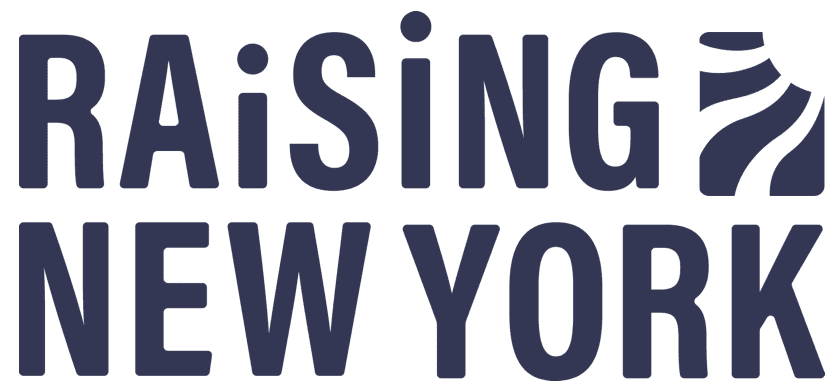Testimony on high-quality, affordable child care delivered to the NYC City Council Committee on Women & Gender Equity
September 21, 2023
The Education Trust–New York (Ed Trust—NY) is a statewide non-profit organization dedicated to educational equity. We work to attain educational justice through research, policy, and advocacy that results in all students – especially those who are from low-income backgrounds or students of color – achieving at high levels from early childhood through college completion. Ed Trust–NY leads the statewide Raising NY coalition, a cross-sector, statewide coalition of parent, early childhood, education, civil rights, business, and health organizations dedicated to advocating for policies and system changes that will benefit families of infants and toddlers, with a focus on improving long-term outcomes for low-income households, children of color, and those in other underserved groups.
Thank you for the opportunity to submit written testimony for this hearing.
Research tells us that the first few years of life are a time of tremendous growth and brain development when high-quality early learning environments are essential to support healthy development and nurture the foundation of a child’s learning potential, with benefits extending well into the school-aged years.
We applaud the Council’s ongoing commitment to creating a comprehensive early care and learning system that supports all New Yorkers. In order to address long-standing racial and economic inequities in the child care system, efforts to expand access and capacity must go hand in hand with expansion of a culturally-responsive, quality rating and improvement system that provides the workforce and families with the tools to identify and cultivate programs that meet specific needs and priorities of families. In an October 2022 Raising NY parent poll, nearly half (49%) of all parents across New York State said that their child care situation was not very workable, with higher rates reported among Black and Latinx parents, as well as those in low-income households. In the same poll, only half (50%) of all parents felt that their child was in a high-quality child care setting and learning daily.
The success of New York’s youngest children rests upon our ability to develop and implement a comprehensive approach to early childhood education that provides high-quality care to all children, especially those who are facing significant barriers to access. We respectfully submit the following recommendations that are key to making this aspirational goal a reality:
- Adapt a culturally responsive quality rating system for all child care programs. A universal, transparent quality rating and improvement system is needed to ensure that all families, especially families with disabilities, families of color, immigrant families, and others who have been historically marginalized, have the tools to locate and access child care programs that are inclusive of their needs and values.
- Increase access to and capacity of high-quality child care programs that offer infant and toddler slots and offer non-traditional hours of care. New York City is home to 100,000 infants and toddlers who are living in poverty. Almost 60% of New York City is considered a child care desert, with even less availability for the youngest children, with only 1 available child care slot for every 5 infants.
- Support child care access for vulnerable families. Expand access to child care subsidies, with additional support for families involved in the child welfare system, families experiencing homelessness, parents/children with disabilities and learning differences, and all immigrant families.
- Ensure providers are compensated consistently and equitably. Decades of under-investment in the child care sector has led to inequities that must be remedied. Child care educators must be paid a sustainable wage that reflects the true cost of care, including parity for all early childhood educators, directors, and staff across the full spectrum of programs.
- Invest in coordinated, streamlined data systems that enable greater cross-sector coordination among programs and sectors serving infants and toddlers. Current data infrastructure is insufficient for assessing and addressing the complex needs and outcomes of families, particularly those with infants and toddlers. A comprehensive, disaggregated data system will support families and inform policymakers to design data-informed policies to support all New Yorkers.
The research is clear: decades of chronic under-investment in child care have resulted in a crisis that is impeding economic success of the city and state. The lack of child care has cost $122 billion nationally in lost revenue and $23 billion in New York City in 2022 alone. Coupled with ongoing lack of affordable housing, New York City is facing an affordability crisis that has resulted in an exodus of families with young children. The economic success of New York City is inextricably linked to a comprehensive, high-quality, fully accessible early care and learning system.
Ed Trust—NY is committed to the success of all children and families in New York, especially the most vulnerable, and we look forward to continuing to work with Council Members and other key stakeholders to build a streamlined, transparent cross-agency child care system that offers equitable access to child care that works for families, supports the early childhood workforce with livable wages and professional development opportunities, and supports the economic security of families; the future of New York City depends on it.
Thank you for the opportunity to submit testimony. Please feel free to contact Lara Kyriakou, Associate Director of Early Childhood Advocacy and Policy at the Education Trust—NY, at [email protected] with any questions regarding this testimony. Thank you.

